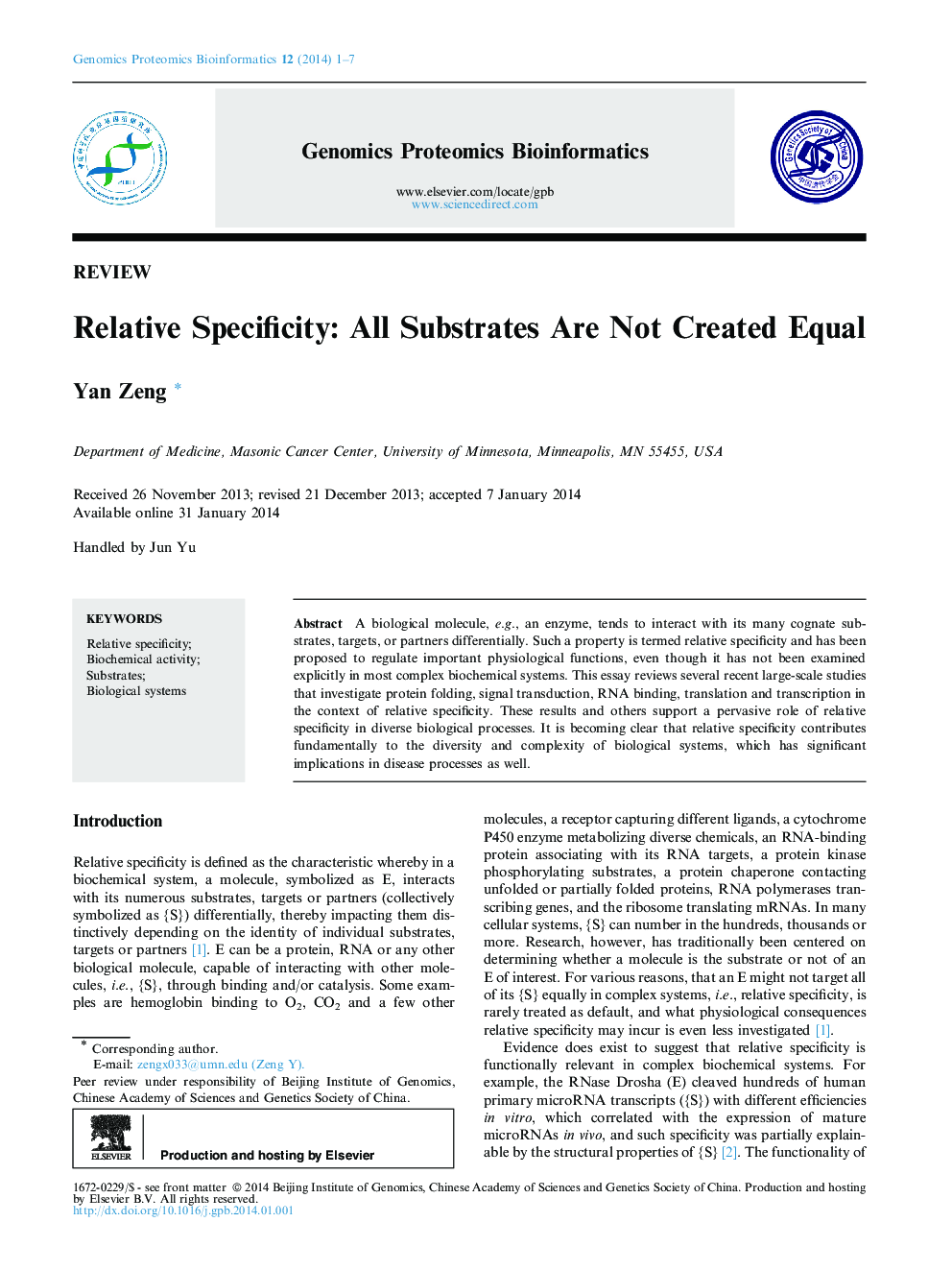| Article ID | Journal | Published Year | Pages | File Type |
|---|---|---|---|---|
| 2822488 | Genomics, Proteomics & Bioinformatics | 2014 | 7 Pages |
A biological molecule, e.g., an enzyme, tends to interact with its many cognate substrates, targets, or partners differentially. Such a property is termed relative specificity and has been proposed to regulate important physiological functions, even though it has not been examined explicitly in most complex biochemical systems. This essay reviews several recent large-scale studies that investigate protein folding, signal transduction, RNA binding, translation and transcription in the context of relative specificity. These results and others support a pervasive role of relative specificity in diverse biological processes. It is becoming clear that relative specificity contributes fundamentally to the diversity and complexity of biological systems, which has significant implications in disease processes as well.
